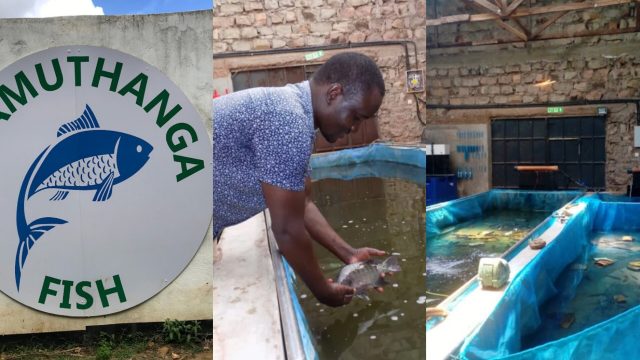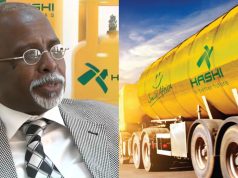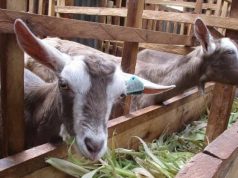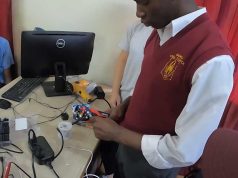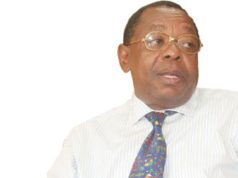Anthony Ndeto is the owner of Kamuthanga Fish Farm located on the slopes of Mua Hills in Machakos County.
The farm is known to be the first fish farm in Africa to receive the EcoMark Africa Label by the African Organisation for Standardisation (AROS).
Ndeto has been running the fish farm for over a decade, and initially faced challenges before a Dutch NGO joined hands and partnered with them.
Here is his story as told by EAFeed.
Ndeto established his fish farm over 10 years ago and initially used the open field method to rear fish before shifting to the recirculating aquaculture system (RAS).
This new method prevented wastage of water, but he uses dirty water that comes out of the cleaning filters to water his tomatoes and vegetables.
The farm’s manager, Joseph Odhiambo, said the method was revolutionary as it changes how they rear fish at the farm.
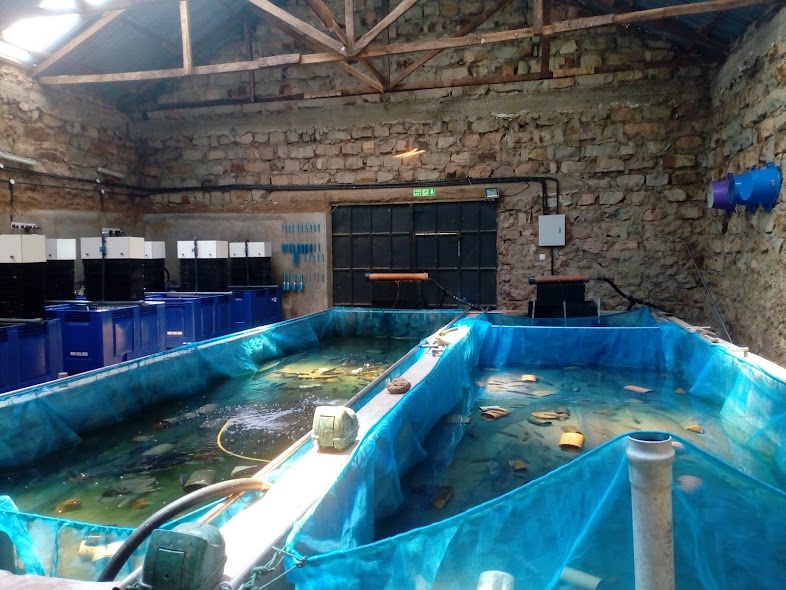
For instance, in traditional fishing, farmers can only stock four fish per square metres, but RAS accommodates up.to 135 fish per square metre.
“Productivity is much higher in the same space and a small amount of water is used, so economic wise, water budget is very low, land space is reduced and a very high production is achieved,” Odhiambo explained.
The farm currently produces 100 tonnes of fish per year, and they rear tilapia and catfish.
The farm sources their breeds, YY supermales, from Netherlands – they are improved and capable of growing two times faster than the female fish.
“When we introduced a greenhouse environment, production that took one year was achieved in less than 5 months and we were able to harvest reputable size of fish,” Odhiambo added.
While the farm is profitable, they have encountered some challenges including general operation costs and cost of power and feeds.
“We import our feeds from Egypt, as these are cheaper and better quality than local feeds. Because we are using RAS technology, we need a specific feed quality, so that the filters are not overwhelmed,” Odhiambo said.
The farm is also taking measures including selling their fish alive to stand out in the saturated market.
“The future plan is to see production double by 2025. We have realised that you can produce double, not necessarily by increasing the space, rather, by increasing the size of the equipment you have,” Odhiambo said.



